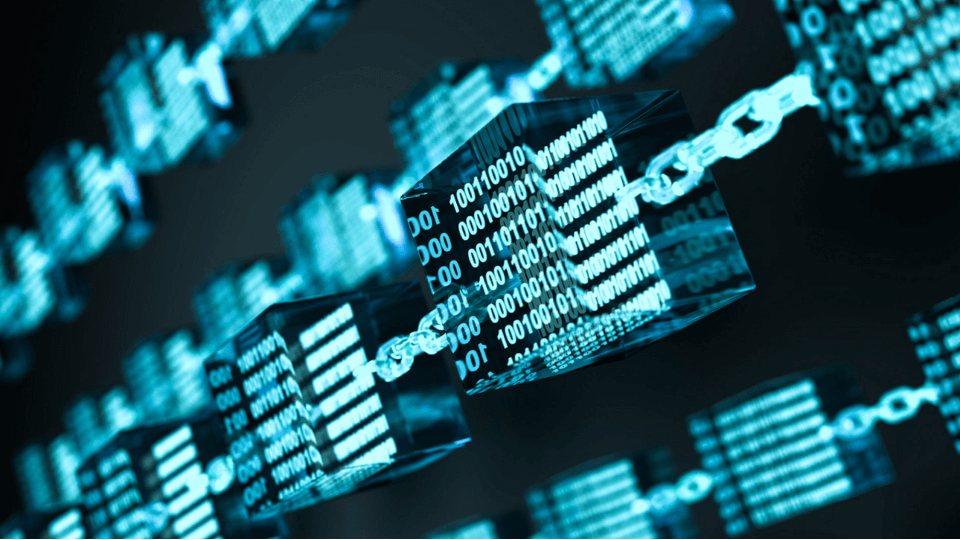Blockchain in Supply Chain Management
Table of Content
Each item that arrives at an end-client address is the joint effort of numerous associations and partners. These are alluded to on the whole as the supply chain network. Associations inside a supply chain network are connected through physical and data streams.
Understanding blockchain innovation:
Blockchain consists of "blocks" of approved and permanent exchanges and how they interface together in the sequential form to frame a chain. Thus the expression "blockchain."

What does it do?
Blockchain is a web-based technology that is valued for its capacity to freely approve, record, and circulate transactions in unchanging, encoded records. Most prominently, the innovation aims to help exchanges in bitcoin, an advanced digital currency that works autonomously from a local bank.
Blockchain assists the parties of the supply chain share sensitive information through secure blockchain arrangements. In the case of any hurdle, this matters a lot. Organizations and customers maintain that brands should ensure item validity, while supply chain network members ensure dependable sourcing and better traceability to limit the chances of threats.
Why include it?
Today, organizations should be coordinated, adaptable, and receptive to getting by. Those that drive ceaseless all through their organizations and supply chains and add a competitive edge in the market by staying dynamic and significant are the ones that succeed.
As the speed of progress increases, working on the effectiveness and transparency of your association's supply chain network becomes basic. Luckily, blockchain innovation can assist in enhancing it.
Big companies using blockchains in their supply chains are now creating frameworks to achieve transparency from the starting point to the end. Let’s dive a little deeper to explore the implications of blockchain in supply chain management.
Supply chain network challenges:
The absence of transparency and visibility are some of the biggest challenges of a supply chain.
The Blockchain Is Already Transforming Supply Chain Management
The center innovation of the blockchain is the decentralized record, which records and safeguards the exchange of information linked between different supply chain parties.
Supply chain solutions:
Blockchain for supply chain network solutions assists organizations to use the information to deal with the problems and build strategies for what's to come.
Blockchain innovation gives a shared space to make and convey the record, or information, of each information or financial transaction to thousands of PCs connected to networks in all regions of the planet.
How does blockchain work?
Blockchain is a type of distributed ledger that holds records of computerized information and trades it in such a manner that makes the data safe and immutable.
Strong, efficient, and secure supply chains:
A productive supply chain can bring down costs, accelerate manufacturing cycles, and relieve threats through blockchain innovation that was made to help bitcoin exchanges, which can potentially enhance the viability and productivity of the majority of organizations or even transform a business. Supply chain network information isn't always available, accessible, or secure all of the time. Let’s look at some of the advantages that blockchain brings to the supply chain.
Better transparency:
Supply chain organizations can face a lot of issues due to a lack of transparency. Blockchain technology, through distributed ledgers that gives a common, single adaptation of reality, provides more visibility across the whole process.
As records on the blockchain can't be altered, it results in a transparent supply chain network. Likewise, each progression in the supply chain network is logged safely, and that implies that coordinated factors issues can be effectively followed to their source.
The goal of shipping in a transparent manner can be achieved through alternate ways, not simply by blockchain. But, the incentive should be clear. Blockchain innovation permits organizations to follow a wide range of exchanges more safely and transparently.
Organizations can utilize blockchain innovation to track any exchange, making it conceivable to share records, individual data, and digital currencies. Since the record is completely authenticated across the organization, it's extremely challenging to tamper with.
Utilizing blockchain, organizations can follow the historical backdrop of an item right from its starting place to where it now sits. Every time an item changes position, the exchange is recorded safely, making an extremely durable history, from assembling to its reaching the final destination.
Create a strong supply chain network:
Even a single unforeseen event can cause a flowing cluster of disturbances in a supply chain. Blockchain enables smart agreements that are activated when pre-characterized business conditions are fulfilled.
Blockchain also assists organizations to use the information to deal with the disturbances of today and construct flexibility for the future. Moreover, through the traceability that the blockchain offers, a company can add esteem by alleviating the significant expenses of value issues, like reviews, reputational harm, or the deficiency of income.
More Security:
Since the transactions and records are encrypted from end to end, blockchain offers more security than other financial models, and its ability to quickly transfer finances or information through the internet beats the traditional banking model that requires days if not weeks for clearance.
Whenever an exchange is mentioned on the framework, it is transferred to a distributed organization containing a few interconnected PCs called nodes. All the nodes check the conditions to check and approve the exchange for consistency across the organization. When approved, the exchange is assembled with different transactions to make a square of information for the ledger.
This has helped simplify container shipping across the world as well as in Dubai.
Cost-Effective:
Apart from capital expenses, you ought to likewise factor in computational expenses connected with blockchain. Financial exchanges handled through blockchain may have sequential expenses relying upon factors like how quickly they should be finished. Frequently ignored, these conditional costs will altogether affect whether a task is feasible.
The technology could assist different firms with saving billions and decreasing loopholes by incorporating with and supplementing electronic information exchange frameworks.
Blockchain gives all parties inside a particular supply chain access to the same data, possibly diminishing correspondence or information blunders. Less time can be spent approving information and more can be spent on providing services and products. Thus reducing the cost.
Sustainability:
A distributed network sharing assets and exchanges diminishes the requirement for paper-based work processes and materials. The traceability and immutability of the blockchain make it simpler to check where materials and products come from, where they go as they travel through the store network and who approached them.
Sustainability with paperless processes doesn't simply bring down materials costs; it additionally dispenses with auxiliary costs connected with capacity and the work expected to process and deal with that large number of actual records.
Effectiveness:
Blockchain makes worldwide supply chains more proficient by permitting organizations to conduct transactions directly without having to depend on any outside parties. The additions to efficiency and decreases in stock damage and waste are huge benefits to the cost reserve funds with blockchain innovation
It additionally works with expanded integration of monetary and coordinated operations administrations, empowering more noteworthy information cooperation between the parties.
 |
About the authorDanielle Gregory is a full-time Writer, Traveler, and Marketing Expert who is Currently Working for Al Sharqi Shipping. Danielle’s writing relates to a range of subjects such as logistics and IoT. Besides writing, she enjoys traveling, Cooking, and Riding. |